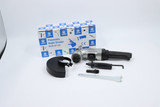Mechanic Tool Kits vs. Individual Tools: What's Best for Your Garage in 2025?
Equipping your garage with the right tools isn’t just a matter of convenience, it's a long-term investment that affects productivity, project quality, and even your safety. Whether you’re a professional mechanic, serious DIYer, or just getting started with repairs, one common dilemma remains: should you buy a complete mechanic tool kit or build your arsenal piece by piece?
With thousands of searchers landing on our mechanic tool kit guide monthly, it's clear this topic matters. But the answer isn’t one-size-fits-all. This comprehensive breakdown will explore the pros, cons, costs, and practical considerations that help you make the most intelligent decision in 2025.
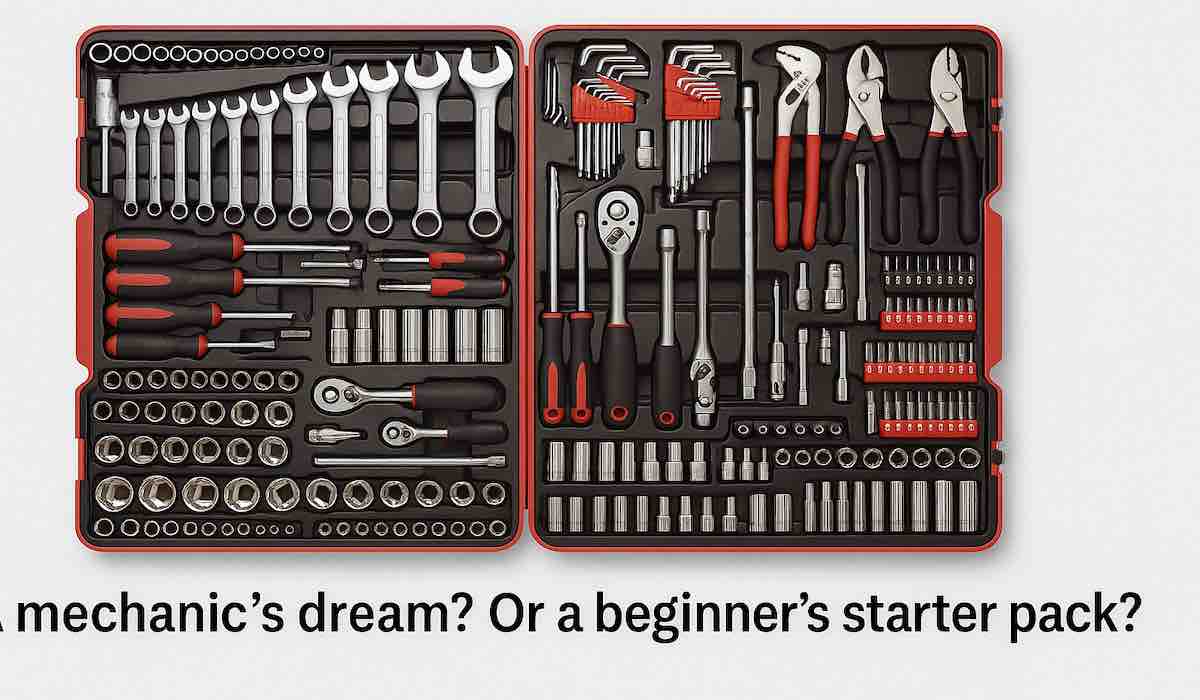
Key Takeaway:
Go for a toolkit if you need variety fast or work in mobile repair. Opt for individual tools if you build a premium, specialized garage setup over time.
Table of Contents
- Tool Kits vs Individual Tools: Quick Comparison Table
- Benefits of Full Mechanic Tool Kits
- Benefits of Buying Tools Separately
- Factors to Consider Before You Decide
- Expert Picks: Tool Kits We Trust in 2025
- Pro Mechanic Tip: The Hybrid Approach
- Common Mistakes First-Time Buyers Make
- FAQs
- Related Articles
- Final Verdict & CTA
Tool Kits vs Individual Tools: Quick Comparison Table
|
Feature |
Mechanic Tool Kits |
Individual Tools |
|
Cost Efficiency |
Better upfront value per tool |
Higher cost per item |
|
Customization |
Limited to what's included |
Full control over brand/type |
|
Tool Quality |
Varies by brand/package |
Easier to go premium tool-by-tool |
|
Use Case |
Ideal for beginners, mobile techs |
Ideal for specialists and professionals |
|
Replacement Difficulty |
Tools often in non-standard sizes/brands |
Easy to replace and upgrade |
Benefits of Full Mechanic Tool Kits
The Full Mechanic Tool kits Best For:
- New mechanics or techs outfitting a mobile van
- DIYers working on a wide range of tasks
- Those who need speed, not customization
Advantages:
- Cost-effective bulk value – Often includes hundreds of pieces for less than buying each item.
- Compact storage – Tools are organized in one portable case or cabinet.
Broad coverage – Includes sockets, ratchets, screwdrivers, pliers, hex keys, and sometimes even specialty tools.
Benefits of Buying Tools Separately
Buying Tools Separately is Great and Best For:
- Mechanics with niche specializations (e.g., performance engines, diagnostics)
- Garage owners with long-term tool plans
- Anyone loyal to specific brands like Snap-On, Shinano, or Milwaukee
Advantages:
- Build for precision – Get tools tailored to your specific workflow.
- Upgrade flexibility – Replace tools one at a time with minimal investment.
- Brand loyalty – Stick to high-quality tools you trust.
Novel Idea:
Use the “80/20 rule”:
80% of your work is done with 20% of your tools. Buy those 20% high-end, and the rest can be budgeted over time.
Factors to Consider Before You Decide
- Budget: Tool kits often cost $150–$800+. A full Snap-On set can hit $10,000+ when built individually.
- Type of Work: General repair vs specialty (diesel, electrical, detailing).
- Storage Space: Kits take less space; loose tools need cabinets.
- Air vs Battery Tools: Are you using pneumatic tools like Shinano? You’ll need a compressor setup.
Brand Ecosystem: Committed to one ecosystem? Stick to individual tools.
Expert Picks: Mechanic Tool Kits We Trust in 2025
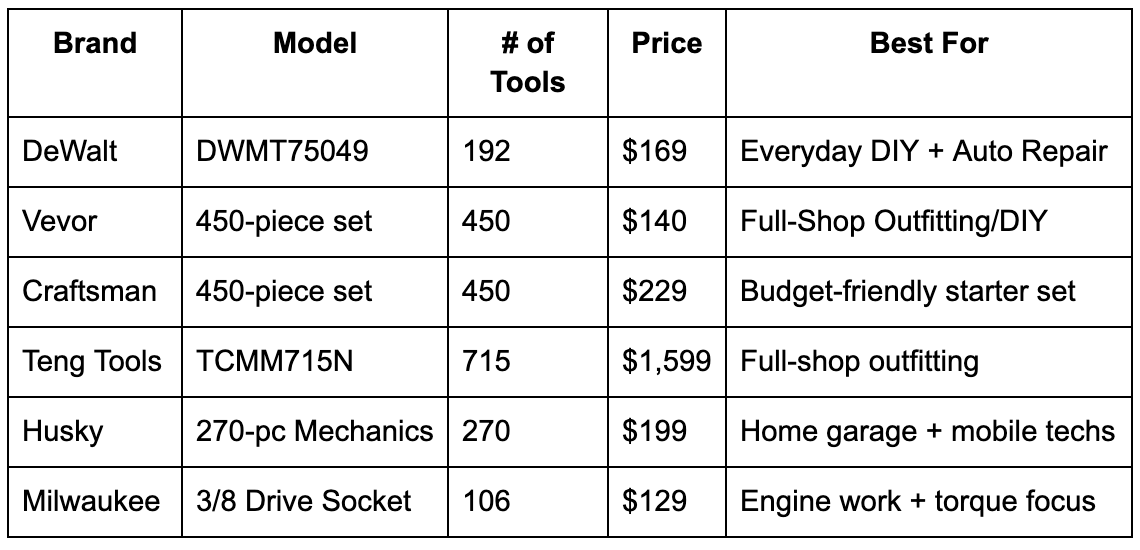
Pair your kit with air tools from Tend Industrial Supplies for peak productivity.
Pro Mechanic Tip: Try the Hybrid Approach
Many mechanics now use a hybrid approach:
- Start with a kit for essentials.
- Slowly upgrade or add specialty tools like torque wrenches, Shinano impact guns, or multimeters.
Use redundant tools as backups or in mobile kits.
The Hybrid Approach
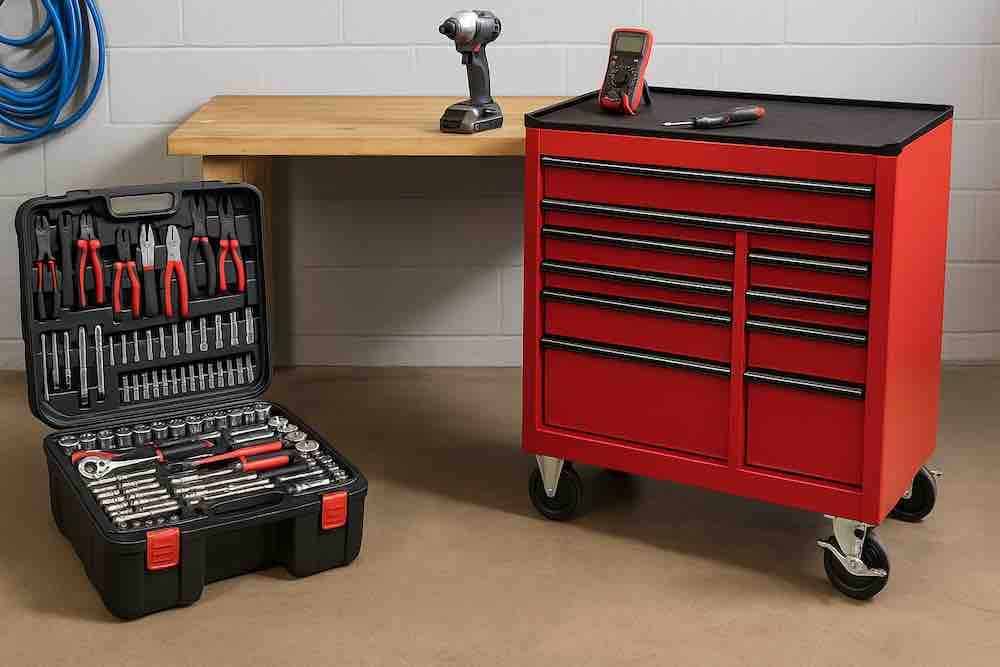
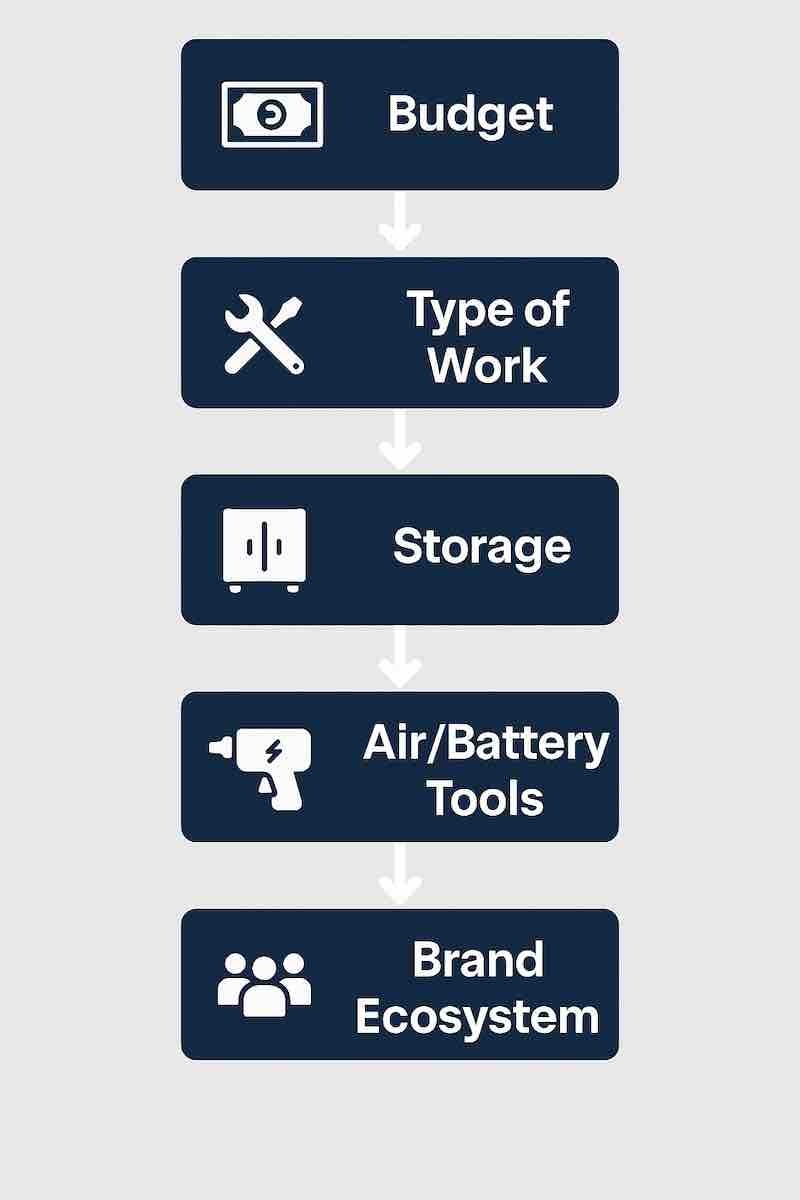
Common Mistakes First-Time Buyers Make
- Going cheap on ratchets (the most-used tool)
- Ignoring socket material (chrome vs impact-rated)
- Buying non-metric kits in metric-dominated auto work
- Not checking for duplicates if mixing kits and loose tools
- Forgetting storage needs and carrying weight
FAQs
Q1: Are tool kits worth the money?
Yes, if you're starting or need quick access to essentials. They're cost-effective but may lack premium durability.
Q2: What’s better for automotive repair—metric or SAE?
Most modern vehicles use metric fasteners. SAE may still be needed for American classic cars or heavy-duty machinery.
Q3: How do I upgrade a basic tool kit?
Start with impact-rated sockets, a torque wrench, and an air or cordless impact wrench.
Q4: Can I mix brands in my toolkit?
Absolutely. Focus on functionality and compatibility, especially socket sizes and drive types.
Q5: What tools should every home mechanic add first?
- 1/2" Drive Ratchet & Sockets
- Allen Key Set
- Torque Wrench
- Multimeter
- Pneumatic Impact Gun (e.g., Shinano SI-1605)
Related Articles from Tend Industrial Supplies
- The Ultimate Guide to Mechanic Tool Kits: Selection, Reviews and Assembly
- Top 10 Air Impact Wrenches of 2025: Reviews and Buyers Guide
- Who Makes the Best Pneumatic Orbital Sander? The Unrivaled Precision of the Shinano SI3310
- Best Budget OBD2 Scanners on Amazon in 2025
- Best Jump Starters in the USA (2024): Tested and Trusted
Final Verdict
Both strategies have their place. The best choice depends on your needs, budget, and long-term plan. If you want to get started right away, grab a comprehensive tool kit. But if you're building a legacy-grade setup, go piece by piece, starting with premium tools like Shinano Air Tools or DeWalt mechanics kits.
Need help choosing the correct setup for your workshop?
Contact us at sales@tendsupplies.com for expert recommendations or to request a quote on premium tools and storage combos. Or visit Tend Industrial Supplies where professional tools meet performance and affordability.
Amazon Affiliate Disclosure: Some links on this site are affiliate links, which means we may earn a small commission if you make a purchase, at no extra cost to you.







